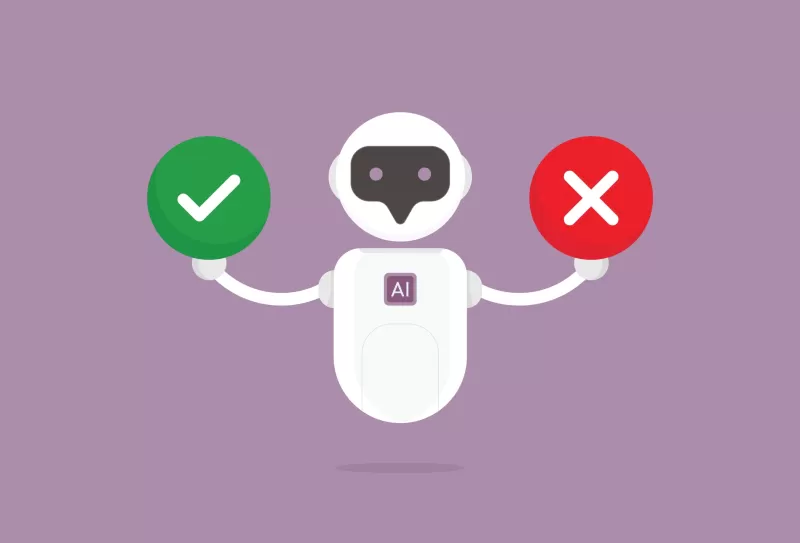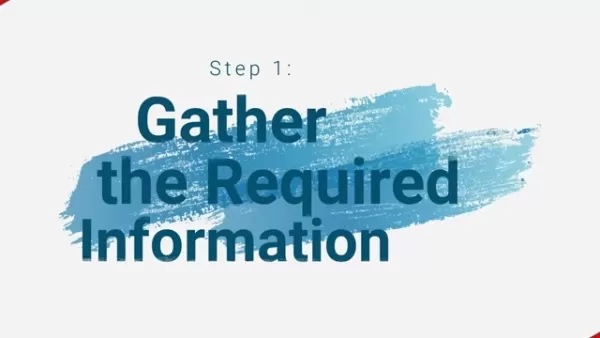Open AI Licenses: Unveiling Hidden Restrictions

This week, Google unveiled Gemma 3, a family of open AI models that have been lauded for their efficiency. However, developers on X have expressed frustration over Gemma 3's license, which poses significant risks for commercial applications. This issue isn't isolated to Gemma 3; companies like Meta also impose custom, non-standard licensing terms on their open models, creating legal hurdles for businesses. Smaller firms, in particular, are concerned that Google and similar companies might suddenly enforce stricter clauses, disrupting their operations.
Nick Vidal, head of community at the Open Source Initiative, highlighted the problem to TechCrunch, stating, "The restrictive and inconsistent licensing of so-called 'open' AI models is creating significant uncertainty, particularly for commercial adoption. While these models are marketed as open, the actual terms impose various legal and practical hurdles that deter businesses from integrating them into their products or services."
Open model developers often opt for proprietary licenses over standard ones like Apache and MIT for specific reasons. For instance, AI startup Cohere has made it clear that it supports scientific, but not commercial, work on its models. However, the licenses for Gemma and Meta's Llama models include restrictions that limit how companies can use them without legal risks.
Meta's Llama 3 license, for example, prohibits developers from using the model's output to improve any model other than Llama 3 or its derivatives. It also bars companies with over 700 million monthly active users from deploying Llama models without a special license. Gemma's license, while less restrictive, allows Google to restrict usage if it believes there's a violation of its prohibited use policy or applicable laws.
These terms extend to models derived from Llama or Gemma, including those trained on synthetic data generated by Gemma. Florian Brand, an AI researcher at Trier University, argues that such licenses "cannot reasonably be called 'open source.'" He told TechCrunch, "Most companies have a set of approved licenses, such as Apache 2.0, so any custom license is a lot of trouble and money. Small companies without legal teams or money for lawyers will stick to models with standard licenses."
Brand also noted that while companies like Google haven't aggressively enforced these terms yet, the mere threat can deter adoption. "These restrictions have an impact on the AI ecosystem—even on AI researchers like me," he said.
Han-Chung Lee, director of machine learning at Moody's, and Eric Tramel, a staff applied scientist at AI startup Gretel, agree that custom licenses like those of Gemma and Llama make the models "not usable" in many commercial scenarios. Tramel raised concerns about the potential for "clawbacks" and the confusion over licensing for model derivatives. He warned that models could be used as a "trojan horse" to gain insight into successful business cases and then leverage legal action to enter those markets.
Despite their restrictive licenses, some models like Llama have seen widespread adoption, being downloaded millions of times and integrated into products by major corporations like Spotify. However, Yacine Jernite, head of machine learning and society at AI startup Hugging Face, believes they could be even more successful with permissive licenses. He urged providers like Google to adopt open license frameworks and collaborate more directly with users on widely accepted terms.
Jernite noted, "Given the lack of consensus on these terms and the fact that many of the underlying assumptions haven't yet been tested in courts, it all serves primarily as a declaration of intent from those actors. If certain clauses are interpreted too broadly, a lot of good work will find itself on uncertain legal ground, which is particularly scary for organizations building successful commercial products."
Vidal emphasized the need for AI models that can be freely integrated, modified, and shared without the fear of sudden license changes or legal ambiguity. He stated, "The current landscape of AI model licensing is riddled with confusion, restrictive terms, and misleading claims of openness. Instead of redefining 'open' to suit corporate interests, the AI industry should align with established open source principles to create a truly open ecosystem."
Related article
 Master Emerald Kaizo Nuzlocke: Ultimate Survival & Strategy Guide
Emerald Kaizo stands as one of the most formidable Pokémon ROM hacks ever conceived. While attempting a Nuzlocke run exponentially increases the challenge, victory remains achievable through meticulous planning and strategic execution. This definitiv
Master Emerald Kaizo Nuzlocke: Ultimate Survival & Strategy Guide
Emerald Kaizo stands as one of the most formidable Pokémon ROM hacks ever conceived. While attempting a Nuzlocke run exponentially increases the challenge, victory remains achievable through meticulous planning and strategic execution. This definitiv
 AI-Powered Cover Letters: Expert Guide for Journal Submissions
In today's competitive academic publishing environment, crafting an effective cover letter can make the crucial difference in your manuscript's acceptance. Discover how AI-powered tools like ChatGPT can streamline this essential task, helping you cre
AI-Powered Cover Letters: Expert Guide for Journal Submissions
In today's competitive academic publishing environment, crafting an effective cover letter can make the crucial difference in your manuscript's acceptance. Discover how AI-powered tools like ChatGPT can streamline this essential task, helping you cre
 US to Sanction Foreign Officials Over Social Media Regulations
US Takes Stand Against Global Digital Content Regulations
The State Department issued a sharp diplomatic rebuke this week targeting European digital governance policies, signaling escalating tensions over control of online platforms. Secretary Marco
Comments (47)
0/200
US to Sanction Foreign Officials Over Social Media Regulations
US Takes Stand Against Global Digital Content Regulations
The State Department issued a sharp diplomatic rebuke this week targeting European digital governance policies, signaling escalating tensions over control of online platforms. Secretary Marco
Comments (47)
0/200
![JoeWalker]() JoeWalker
JoeWalker
 August 22, 2025 at 3:01:25 PM EDT
August 22, 2025 at 3:01:25 PM EDT
The licensing drama with Gemma 3 is wild! 😅 Google touts it as 'open,' but those restrictions scream control. Makes me wonder if big tech’s just dangling shiny toys to keep devs hooked while locking down real innovation. Anyone else feel this is more about PR than progress?


 0
0
![RalphThomas]() RalphThomas
RalphThomas
 July 30, 2025 at 9:41:19 PM EDT
July 30, 2025 at 9:41:19 PM EDT
Gemma 3 sounds cool, but those license restrictions are a buzzkill! 😕 Why do companies make it so hard to use AI for real-world stuff?


 0
0
![MichaelMartinez]() MichaelMartinez
MichaelMartinez
 April 16, 2025 at 9:35:33 PM EDT
April 16, 2025 at 9:35:33 PM EDT
I was excited about Gemma 3 until I read the license terms. It's like they want you to use it, but not really for anything that makes money. Kind of a bummer! Anyone else feel the same? Maybe they'll loosen up the restrictions soon. 🤞


 0
0
![WalterMartinez]() WalterMartinez
WalterMartinez
 April 15, 2025 at 8:25:10 AM EDT
April 15, 2025 at 8:25:10 AM EDT
A licença do Gemma 3 é uma verdadeira dor de cabeça para os desenvolvedores! 😤 Fiquei entusiasmado com sua eficiência, mas as restrições comerciais? Não é legal. Faz-me pensar quais outras armadilhas ocultas existem por aí. Preciso ser mais cuidadoso com os modelos de IA abertos agora.


 0
0
![RyanMartinez]() RyanMartinez
RyanMartinez
 April 15, 2025 at 6:14:39 AM EDT
April 15, 2025 at 6:14:39 AM EDT
Tôi rất hào hứng với Gemma 3 cho đến khi đọc điều khoản giấy phép. Cảm giác như họ muốn bạn sử dụng nó, nhưng không phải cho mục đích thương mại. Thật là thất vọng! Ai cũng cảm thấy như vậy không? Hy vọng họ sẽ nới lỏng các hạn chế sớm. 🤞


 0
0
![EricRoberts]() EricRoberts
EricRoberts
 April 15, 2025 at 3:56:31 AM EDT
April 15, 2025 at 3:56:31 AM EDT
Gemma 3의 라이선스는 개발자들에게 정말 골치 아픈 문제네요! 😤 효율성에는 흥분했지만, 상업적 제한은 별로예요. 다른 숨겨진 함정이 있는지 궁금해집니다. 이제 오픈 AI 모델을 다룰 때 더 신중해야겠어요.


 0
0

This week, Google unveiled Gemma 3, a family of open AI models that have been lauded for their efficiency. However, developers on X have expressed frustration over Gemma 3's license, which poses significant risks for commercial applications. This issue isn't isolated to Gemma 3; companies like Meta also impose custom, non-standard licensing terms on their open models, creating legal hurdles for businesses. Smaller firms, in particular, are concerned that Google and similar companies might suddenly enforce stricter clauses, disrupting their operations.
Nick Vidal, head of community at the Open Source Initiative, highlighted the problem to TechCrunch, stating, "The restrictive and inconsistent licensing of so-called 'open' AI models is creating significant uncertainty, particularly for commercial adoption. While these models are marketed as open, the actual terms impose various legal and practical hurdles that deter businesses from integrating them into their products or services."
Open model developers often opt for proprietary licenses over standard ones like Apache and MIT for specific reasons. For instance, AI startup Cohere has made it clear that it supports scientific, but not commercial, work on its models. However, the licenses for Gemma and Meta's Llama models include restrictions that limit how companies can use them without legal risks.
Meta's Llama 3 license, for example, prohibits developers from using the model's output to improve any model other than Llama 3 or its derivatives. It also bars companies with over 700 million monthly active users from deploying Llama models without a special license. Gemma's license, while less restrictive, allows Google to restrict usage if it believes there's a violation of its prohibited use policy or applicable laws.
These terms extend to models derived from Llama or Gemma, including those trained on synthetic data generated by Gemma. Florian Brand, an AI researcher at Trier University, argues that such licenses "cannot reasonably be called 'open source.'" He told TechCrunch, "Most companies have a set of approved licenses, such as Apache 2.0, so any custom license is a lot of trouble and money. Small companies without legal teams or money for lawyers will stick to models with standard licenses."
Brand also noted that while companies like Google haven't aggressively enforced these terms yet, the mere threat can deter adoption. "These restrictions have an impact on the AI ecosystem—even on AI researchers like me," he said.
Han-Chung Lee, director of machine learning at Moody's, and Eric Tramel, a staff applied scientist at AI startup Gretel, agree that custom licenses like those of Gemma and Llama make the models "not usable" in many commercial scenarios. Tramel raised concerns about the potential for "clawbacks" and the confusion over licensing for model derivatives. He warned that models could be used as a "trojan horse" to gain insight into successful business cases and then leverage legal action to enter those markets.
Despite their restrictive licenses, some models like Llama have seen widespread adoption, being downloaded millions of times and integrated into products by major corporations like Spotify. However, Yacine Jernite, head of machine learning and society at AI startup Hugging Face, believes they could be even more successful with permissive licenses. He urged providers like Google to adopt open license frameworks and collaborate more directly with users on widely accepted terms.
Jernite noted, "Given the lack of consensus on these terms and the fact that many of the underlying assumptions haven't yet been tested in courts, it all serves primarily as a declaration of intent from those actors. If certain clauses are interpreted too broadly, a lot of good work will find itself on uncertain legal ground, which is particularly scary for organizations building successful commercial products."
Vidal emphasized the need for AI models that can be freely integrated, modified, and shared without the fear of sudden license changes or legal ambiguity. He stated, "The current landscape of AI model licensing is riddled with confusion, restrictive terms, and misleading claims of openness. Instead of redefining 'open' to suit corporate interests, the AI industry should align with established open source principles to create a truly open ecosystem."
 Master Emerald Kaizo Nuzlocke: Ultimate Survival & Strategy Guide
Emerald Kaizo stands as one of the most formidable Pokémon ROM hacks ever conceived. While attempting a Nuzlocke run exponentially increases the challenge, victory remains achievable through meticulous planning and strategic execution. This definitiv
Master Emerald Kaizo Nuzlocke: Ultimate Survival & Strategy Guide
Emerald Kaizo stands as one of the most formidable Pokémon ROM hacks ever conceived. While attempting a Nuzlocke run exponentially increases the challenge, victory remains achievable through meticulous planning and strategic execution. This definitiv
 AI-Powered Cover Letters: Expert Guide for Journal Submissions
In today's competitive academic publishing environment, crafting an effective cover letter can make the crucial difference in your manuscript's acceptance. Discover how AI-powered tools like ChatGPT can streamline this essential task, helping you cre
AI-Powered Cover Letters: Expert Guide for Journal Submissions
In today's competitive academic publishing environment, crafting an effective cover letter can make the crucial difference in your manuscript's acceptance. Discover how AI-powered tools like ChatGPT can streamline this essential task, helping you cre
 US to Sanction Foreign Officials Over Social Media Regulations
US Takes Stand Against Global Digital Content Regulations
The State Department issued a sharp diplomatic rebuke this week targeting European digital governance policies, signaling escalating tensions over control of online platforms. Secretary Marco
US to Sanction Foreign Officials Over Social Media Regulations
US Takes Stand Against Global Digital Content Regulations
The State Department issued a sharp diplomatic rebuke this week targeting European digital governance policies, signaling escalating tensions over control of online platforms. Secretary Marco
 August 22, 2025 at 3:01:25 PM EDT
August 22, 2025 at 3:01:25 PM EDT
The licensing drama with Gemma 3 is wild! 😅 Google touts it as 'open,' but those restrictions scream control. Makes me wonder if big tech’s just dangling shiny toys to keep devs hooked while locking down real innovation. Anyone else feel this is more about PR than progress?


 0
0
 July 30, 2025 at 9:41:19 PM EDT
July 30, 2025 at 9:41:19 PM EDT
Gemma 3 sounds cool, but those license restrictions are a buzzkill! 😕 Why do companies make it so hard to use AI for real-world stuff?


 0
0
 April 16, 2025 at 9:35:33 PM EDT
April 16, 2025 at 9:35:33 PM EDT
I was excited about Gemma 3 until I read the license terms. It's like they want you to use it, but not really for anything that makes money. Kind of a bummer! Anyone else feel the same? Maybe they'll loosen up the restrictions soon. 🤞


 0
0
 April 15, 2025 at 8:25:10 AM EDT
April 15, 2025 at 8:25:10 AM EDT
A licença do Gemma 3 é uma verdadeira dor de cabeça para os desenvolvedores! 😤 Fiquei entusiasmado com sua eficiência, mas as restrições comerciais? Não é legal. Faz-me pensar quais outras armadilhas ocultas existem por aí. Preciso ser mais cuidadoso com os modelos de IA abertos agora.


 0
0
 April 15, 2025 at 6:14:39 AM EDT
April 15, 2025 at 6:14:39 AM EDT
Tôi rất hào hứng với Gemma 3 cho đến khi đọc điều khoản giấy phép. Cảm giác như họ muốn bạn sử dụng nó, nhưng không phải cho mục đích thương mại. Thật là thất vọng! Ai cũng cảm thấy như vậy không? Hy vọng họ sẽ nới lỏng các hạn chế sớm. 🤞


 0
0
 April 15, 2025 at 3:56:31 AM EDT
April 15, 2025 at 3:56:31 AM EDT
Gemma 3의 라이선스는 개발자들에게 정말 골치 아픈 문제네요! 😤 효율성에는 흥분했지만, 상업적 제한은 별로예요. 다른 숨겨진 함정이 있는지 궁금해집니다. 이제 오픈 AI 모델을 다룰 때 더 신중해야겠어요.


 0
0





























